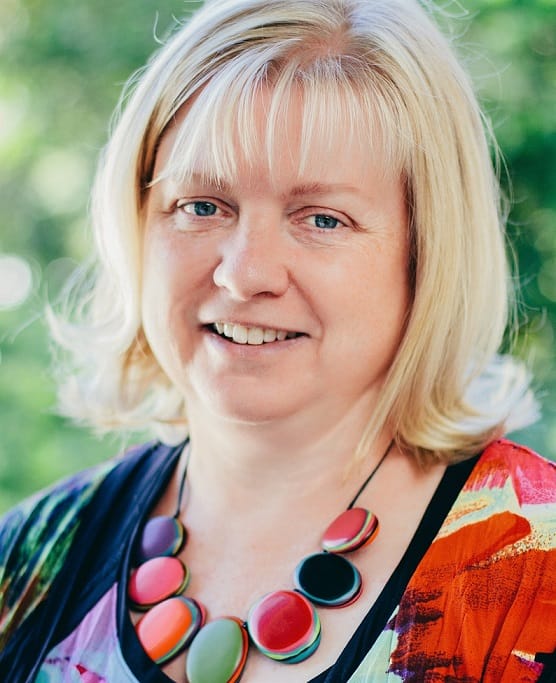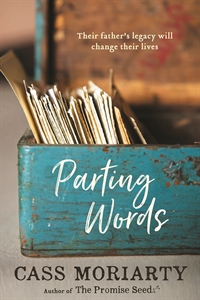
‘Parting words’ is your much-awaited second novel that asks: how well do we really know our parents? Your debut novel, ‘The Promise Seed’, was longlisted for the 2017 International Dublin Literary Award, and shortlisted for the 2016 People’s Choice category and the 2013 Emerging Queensland Author category in the Queensland Literary Awards. After working in public relations and marketing roles, writing speeches, press releases and annual reports, what inspired you to move into fiction writing?
Like many writers, I spent my childhood telling stories, creating ‘books’ complete with (very bad) illustrations, and spending many hours in the other worlds of my imagination. As a young adult, working in marketing, I used artistic licence to produce creative ‘factional’ promotional material – to use stories to provide information. So I suppose it was a gradual process towards writing fiction, which I didn’t start until I was 40 (proving it’s never too late!). Once I began writing fiction, it gave me so much joy – I felt immersed in the lives and circumstances of my characters – that there was never a question of turning back.
You also worked as a volunteer counsellor in child protection – in what ways has that experience informed your writing?
My experience as a volunteer counsellor has definitely informed my writing, providing me with much information about how families function, and the myriad ways in which dysfunction can disrupt and fracture families. I developed a deep appreciation for the vulnerability of children in situations of conflict, and I also began to understand the complexities of family dynamics. I realised early on that nothing is ever black and white – that even when one person seems clearly the perpetrator or the aggressor, there are background circumstances that have led to that person becoming who they are, an environment that has precipitated their behaviour. Now that I am a writer with a public voice, I believe it’s so important to make use of my opportunity to be a voice for the voiceless, whether that’s children or other vulnerable people in our society.
You wrote two other manuscripts before publishing your first novel, ‘The Promise Seed’. What was it about your third attempt that suggested it had greater potential? Was it a matter of the writing experience having honed your craft, or simply the concept for the book itself?
Writing is like anything: you get better with practice. I hope that I am improving as a writer with each manuscript I produce. My earlier stories were very much attempts at finding my voice and working out what I wanted to write, and how I wanted to write it. So yes, honing my craft, although I probably didn’t think of it at the time as something so defined! Certainly now, after being through the experience of the professional editing of two manuscripts, I am much more aware of the craft of writing, of my own personal tendencies and idiosyncrasies which I try to correct, and of what the editor expects from my work. But it is definitely a case of the more I know, the more I realise how much I DON’T know! I am much more critical of my work now. I also have a much greater appreciation for the writing of others – a more thorough understanding of the work that has gone into a particular piece of writing, and an envious admiration for that excellent writing that sings from the pages.
You say that you like to write stories that ask more questions than they answer – is this an intentional process, or something you feel happens naturally in your writing?
I think this stems from preferences in my own reading – I like a novel that leaves me with questions and innumerable possibilities rather than having everything tied up neatly with answers. And I think it is a little of both: I am aware of this when I’m writing, and I try not to be too proscriptive in my writing, but I also find that it tends to happen quite naturally. I consider each of my stories as not having a ‘beginning’ and an ‘end’, but as a snapshot of the characters’ lives, with the story beginning well before I start telling it, and the narrative continuing on long after the last page, much as life is a continual cycle of renewal and growth. I love to imagine what my characters were doing before they made it into my story, and what happened to them afterwards. I also like to credit readers with vast imaginations – they are more than capable of envisioning alternative or subsequent endings!
Readers of your new novel ‘Parting Words’ have found that it leaves them questioning their relationships with their own parents – was this your intention? Did it have a similar impact on you as you wrote it?
Yes, to both questions. That may not have been my intention when I began the story, but certainly mid-way through, I realised that this was one of the tasks I was giving readers: to question their own histories and stories, and to grapple with how much (or how little) they understood of their own parents’ or grandparents’ lives. And yes, it certainly had the same impact on me. I saw more clearly how little I comprehend of my own family history, and how sad it is that as each generation dies, more of that family lore is lost. I also discovered quite a few things about my own family that I didn’t know before. There were things I had assumed, which in fact were quite erroneous. And it’s been really interesting since the book has been published, in that so many readers have ‘confided’ to me their own family secrets! So many black sheep, incidents or family members not spoken about for years, affairs, illegitimate children, bankruptcies … it’s quite amazing. Every family has a few skeletons in the closet! Everyone has a story.
What was the best piece of advice you were given as an emerging writer?
Hmmm … so much advice from so many talented writers. Probably the best piece of advice was about the value of white space and silences on the page. I am still trying to achieve this. Some writers do this so well, and apparently effortlessly, although of course I know it is not without a great deal of exertion and brutal self-editing. So yes, it would be about knowing everything in your head, but avoiding the temptation to put it all on the page, understanding when to leave silences, and giving the reader space to fill the gaps with their own imagination.
Cass MoriartyCass Moriarty lives and writes in Brisbane. Her debut novel, The Promise Seed, was longlisted for the 2017 International Dublin Literary Award, and shortlisted for the 2016 People’s Choice category and the 2013 Emerging Queensland Author category in the Queensland Literary Awards. She has a Bachelor of Business – Communication degree from Queensland University of Technology, and has worked in public relations, advertising and marketing. She and her husband have six children.
‘Parting Words’ is published by UQP |
 |
